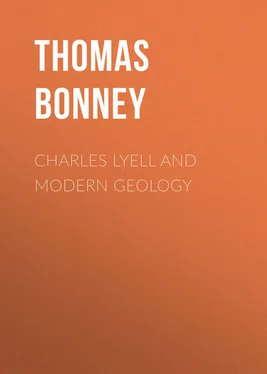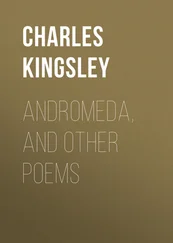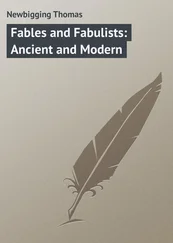Thomas Bonney - Charles Lyell and Modern Geology
Здесь есть возможность читать онлайн «Thomas Bonney - Charles Lyell and Modern Geology» — ознакомительный отрывок электронной книги совершенно бесплатно, а после прочтения отрывка купить полную версию. В некоторых случаях можно слушать аудио, скачать через торрент в формате fb2 и присутствует краткое содержание. ISBN: , Жанр: foreign_antique, foreign_prose, на английском языке. Описание произведения, (предисловие) а так же отзывы посетителей доступны на портале библиотеки ЛибКат.
- Название:Charles Lyell and Modern Geology
- Автор:
- Жанр:
- Год:неизвестен
- ISBN:http://www.gutenberg.org/ebooks/34502
- Рейтинг книги:5 / 5. Голосов: 1
-
Избранное:Добавить в избранное
- Отзывы:
-
Ваша оценка:
- 100
- 1
- 2
- 3
- 4
- 5
Charles Lyell and Modern Geology: краткое содержание, описание и аннотация
Предлагаем к чтению аннотацию, описание, краткое содержание или предисловие (зависит от того, что написал сам автор книги «Charles Lyell and Modern Geology»). Если вы не нашли необходимую информацию о книге — напишите в комментариях, мы постараемся отыскать её.
Charles Lyell and Modern Geology — читать онлайн ознакомительный отрывок
Ниже представлен текст книги, разбитый по страницам. Система сохранения места последней прочитанной страницы, позволяет с удобством читать онлайн бесплатно книгу «Charles Lyell and Modern Geology», без необходимости каждый раз заново искать на чём Вы остановились. Поставьте закладку, и сможете в любой момент перейти на страницу, на которой закончили чтение.
Интервал:
Закладка:
Конец ознакомительного фрагмента.
Текст предоставлен ООО «ЛитРес».
Прочитайте эту книгу целиком, купив полную легальную версию на ЛитРес.
Безопасно оплатить книгу можно банковской картой Visa, MasterCard, Maestro, со счета мобильного телефона, с платежного терминала, в салоне МТС или Связной, через PayPal, WebMoney, Яндекс.Деньги, QIWI Кошелек, бонусными картами или другим удобным Вам способом.
1
Born 1767, died 1849 (also son of a Charles Lyell); educated at St. Andrew's and at St. Peter's College, Cambridge, where he proceeded to the degree of B.A. in 1791 and M.A. in 1794.
2
In 1835, the Canzoniere , including the Vita Nuova and Convito ; a second edition was published in 1842; in 1845 a translation of the Lyrical Poems of Dante.
3
Life, Letters, and Journals, vol. i. p. 3.
4
Probably they were fossil sponges.
5
Life, Letters, and Journals, vol. i. p. 43.
6
Life, Letters, and Journals, vol. i. p. 69.
7
Now generally called Parnassius Apollo; but very likely he captured more than one species of the genus.
8
Probably it was a bituminous shale which had become ignited, as was the case at Ringstead Bay, Dorset, with the Kimeridge clay. The same often happens with the "banks" of coal-pits.
9
Now recognised as gault. The identification named above was soon found to be correct.
10
Life, Letters, and Journals, vol. i. p. 127. Some sentences (for the sake of brevity) are omitted from the quotation.
11
He was also elected a Fellow of the Royal Society in 1826.
12
It appeared in the Edin. Journ. Sci. , iii. (1825) p. 112, being his first actual publication. Its importance consisted in proving that serpentine was, or rather had been, an igneous rock. If proper attention had been paid to it, fewer mistaken statements and hypotheses would have attained the dignity of appearing in print.
13
Dr. Gideon A. Mantell, a surgeon by profession, at that time resident in Lewes, who made valuable contributions to the geology of South-East England, and was also distinguished for his popular lectures and books. He died in 1852.
14
Probably referring to an article on Scrope's "Geology of Central France," in which he shows that he fully accepted the Huttonian doctrine of interpreting the geology of past ages by reference to the causes still at work. It appeared in the Quarterly Review , Oct. 1827, vol. xxxvi. p. 437.
15
Life, Letters, and Journals, vol. i. p. 169.
16
Dr. John MacCulloch, author (among other works) of the "Highlands and Western Isles of Scotland." He was an excellent geologist on the mineralogical side, but had little sympathy with palæontology or with the views to which Lyell inclined. He died in 1835.
17
This district had been already explored by Mr. G. P. Scrope, the first edition of whose classic work, "The Volcanoes of Central France," was published in 1826.
18
Sir John F. W. Herschel, the second of the illustrious astronomers of that name.
19
Sir W. J. Hooker.
20
Certain passages in a letter of Sidonius Apollinaris, Bishop of Clermont, dated about 460 A.D., and in the works of Alcimus Avitus, Archbishop of Vienne, about half a century later, have been interpreted as referring to volcanic eruptions somewhere in Auvergne. This, however, is disputed by many authorities. (See Geological Magazine , 1865, p. 241.)
21
Life, Letters, and Journals, vol. i. p. 199.
22
Life, Letters, and Journals, vol. i. p. 238.
23
Life, Letters, and Journals, vol. i. p. 215.
24
Life, Letters, and Journals, vol. i. p. 252.
25
Ibid.
26
Ut suprà , p. 253.
27
"Reliquiæ Diluvianæ, or Observations on Organic Remains contained in Caves, Fissures, and Diluvial Gravel, and on other Geological Phenomena attesting the Action of an Universal Deluge." By Professor Buckland. 1823.
28
Ut suprà , p. 254.
29
Life, Letters, and Journals, vol. i. p. 255.
30
Ut suprà , p. 256.
31
Further work has not verified some of these statements. There can be no question that a great deal of rock in the Alps is much older than even the Trias. The apparent superposition of crystalline schists to rocks with fossils is due to over-folding or over-thrust faulting — i. e. the schists are the older rocks. Though the Secondary rocks of the Alps have undergone, in places, some modification and mineral changes, these are very different from the metamorphism of those crystalline schists which have a stratified origin.
32
Now "University College," London, having been incorporated by Royal Charter under that title in November, 1836.
33
Ut suprà , p. 258.
34
Life, Letters, and Journals, vol. i. pp. 269-271.
35
When he left the publisher had not decided whether it should be issued at once or kept back till October.
36
D'Aubuisson, as time has shown, foresaw a real danger. The neglect of, if not contempt for, mineralogy, which became conspicuous between the years 1840 and 1870, or thereabouts, seriously impeded the progress of geology, at any rate in England.
37
Life, Letters, and Journals, vol. i. p. 276.
38
Life, Letters, and Journals, vol. i. p. 283.
39
Life, Letters, and Journals, vol. i. p. 296.
40
Subsequent experience has shown that, while the above observations are beyond all question in the case of ordinary sedimentary rocks, structures curiously resembling lamination and ripple-mark may be produced in certain gneisses and crystalline schists by other causes. Still, in many schists, they have originated in the way suggested by Lyell, and indicate that the rock formerly was deposited by water.
41
Life, Letters, and Journals, vol. i. p. 303.
42
Ut suprà , p. 305.
43
Life, Letters, and Journals, vol. i. p. 313.
44
The Rev. W. D. Conybeare, afterwards Dean of Llandaff, an eminent geologist, rather senior to Lyell.
45
Life, Letters, and Journals, vol. i. p. 316.
46
It was formerly conceded by the Universities of Oxford, Cambridge, and Dublin that a Master of Arts in any one could assume, under certain conditions, the same position in the others. This carried with it some privileges, though not the suffrage and the full rights of the degree. Lyell had proceeded to the degree of M.A. at Oxford in 1821.
Читать дальшеИнтервал:
Закладка:
Похожие книги на «Charles Lyell and Modern Geology»
Представляем Вашему вниманию похожие книги на «Charles Lyell and Modern Geology» списком для выбора. Мы отобрали схожую по названию и смыслу литературу в надежде предоставить читателям больше вариантов отыскать новые, интересные, ещё непрочитанные произведения.
Обсуждение, отзывы о книге «Charles Lyell and Modern Geology» и просто собственные мнения читателей. Оставьте ваши комментарии, напишите, что Вы думаете о произведении, его смысле или главных героях. Укажите что конкретно понравилось, а что нет, и почему Вы так считаете.












